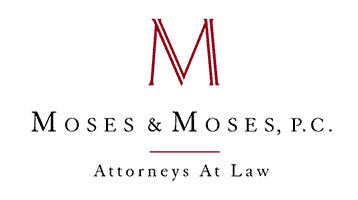“What is a Living Trust and Who Does it Involve?”
A trust is very flexible and many provisions can be drawn to achieve your specific goals. A trust has three parties: one who creates it (a “Grantor”); one who administers is (the “Trustee”); and one who gets the benefit (the “Beneficiary”).
The Grantor decides how he or she wants assets to be handled; has a trust agreement prepared; appoints a person as Trustee; and lists who are to benefit. All three parties can be the same!
You can have one trust for both spouses or two separate trusts depending upon tax considerations and the ownership of assets.;
“How Does a Living Trust Work?”
- The trust is revocable — you can revise or terminate it after it is signed. The trust becomes irrevocable after the Grantor dies so terms cannot be changed.
- You or someone else you name is the initial Trustee. If she or he can no longer serve, the person named as successor Trustee will serve.
- The Trustee pays you whatever income and principal you as Beneficiary need or request. If the Beneficiary becomes incapacitated, the Trustee continues to pay for your health and support. When the Beneficiary dies, you determine who will receive what benefits and when; and how the property will be divided.
- Real estate can belong to the trust, and the spouse can have the right to occupy it for life.
- There would also be a “pour over” Will that gives the trust any property you own that does not have a joint owner or beneficiary named. If there is no such property, the Will is not needed and Probate is avoided.
“What are the Advantages?”
- A Living Trust is valuable for older people who can take care of their assets now but fear at some point they may need assistance.
- A living trust can avoid someone being appointed as your guardian and conservator under an expensive and time-consuming court proceeding — one in which you may not have the best person appointed to take care of you. If the elderly person has trouble with family members, the trust can be made “irrevocable”.
- It maintains privacy since a trust agreement is not made public. Because the trust is a private document, you may avoid a challenge to it enforceability and avoid claims of creditors.
- Income from a living trust is reported on Schedule C of your income tax return so a separate return and EIN are not required during your lifetime.
- It provides a smooth transition managing financial affairs if you become disabled or die.
- It can contain terms to give assets to family, etc. on your death.
- It avoids the cost and time for probate if all individually-owned assets are transferred into the trust.
- If you own the property in certain states you can place the property in the trust to avoid separate probate in that state.
“What are the Disadvantages?”
- The Grantor must transfer ownership of assets into the trust, which requires paperwork and follow up, and may also require recording documents and the paying fees.
- If you decide not to have the trust, you must transfer assets out of it.
- You must take title to new assets in the trust’s name and as trustee.






